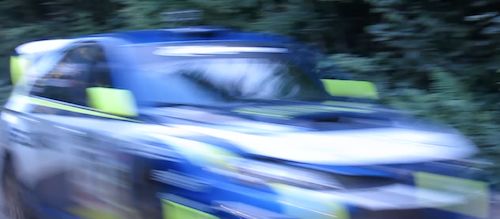
July 24, 2011
The Rookie Ham Radio Operator and Public Service Events
After a hiatus of nearly six years, I immersed myself back into the amateur radio hobby. I was originally licensed in 2003 and was only active for about two years. When I recently keyed up the mike after that break, I felt like I was absolutely starting over.
I plunged back into the hobby on the slopes of Mt. Washington at the epic Climb to the Clouds auto race. Two weeks later I was back on the peak nearly at the top working a bicycle race. Six days later I was deep in the trees at the New England Forest Rally.
Amateur (ham) radio operators volunteer across the USA, and I'm sure other nations, to assist in communications at countless events. Marathons, car races, dog-sled races, bicycle events, etc. These are all non-emergency events, but emergencies can and do happen at any time during these contests.
Ham radio operators pride themselves with being able to mobilize and communicate during emergencies, so it's a natural to have hams at public service events. They have the equipment and the training. It's a core strength of the hobby.
I made mistakes at each event that could have been prevented. Some were due to my rookie status, others might be a mixture of my inexperience and oversights on the part of event organizers.
Here's my short list of Do's and Don'ts for a rookie ham operator working a public service event.
DO's:
- Be prepared for any weather.
- Be prepared to be on your own for hours with no help.
- Have secondary and other frequencies available in case you can't propagate at a location where you're assigned.
- Turn off the 1750 Hz burst tone on your radio
- If you have multiple radios, both mobile and hand-held, bring them.
- Ask if there are any handouts that show exact locations and where you're supposed to stand and park your car
- Make sure you know exactly where you are on a course. Are you at the beginning, middle or end of the course?
- Obtain the operating frequencies before the event. Program them into your radio.
- Wear a safety vest that clearly identifies you. It's for your safety and it helps others know you're an authority figure. This can help in times of confusion.
- Make sure there's a secret word or phrase that's used to stop a race or warn participants to STOP racing.
DON'Ts:
- Don't panic - Ask experienced hams at the event what it's like when the you-know-what hits the fan.
- Don't assume you'll have no action. An emergency can happen at any place and any time during the event.
- Don't forget your primary purpose. You're a communicator, not a rescuer. You need to be on the radio giving data about what's going on. If you can't broadcast and receive, you're useless.
- Don't start the event without a backup plan. What happens if you get to your position and you can't propagate? How will you fix that? How will you communicate to Net Control - headquarters - that you have a radio issue?
This is just a partial list of suggestions. I'm sure experienced ham operators have a boatload of other tips that can make public service work go off without a hitch.
At my last event, the New England Forest Rally, I made a terrible mistake. It caused the most popular stage of the rally to be cancelled. I felt horrible after this happened, and I'm sure the drivers wanted to choke me to death.

I was on the course, but had no idea where I was. About a third of the way into the race, a race car shot off the course into the woods. In the confusion that erupted on the radios trying to discover if the driver and co-driver were okay, the stage manager blurted on the frequency, "STOP all cars. STOP all cars!"
Because I was a rookie, I thought that meant to stop all cars on the course, as I didn't know if the cars passing me were about to come upon the wreck.
Not having anyone with me, I immediately got out my red cross card and waved it at drivers who were zooming past me. The INSTANT I displayed the red cross, the race stage was over. My action caused drivers to slow down and stop, ruining their run.
What the "Stop all cars" call on the radio meant, was to stop any further cars from starting. My suggestion, to all race organizers, is to come up with a word or phrase similar to MayDay, that is ONLY used on the frequency to communicate what should happen in an emergency situation.
I so wish I could replay what happened and have the organizers agree to broadcast this over the radios: "Red Cross Red Cross - All stations display the Red Cross." But what do I know, I'm just a rookie.
Posted by Tim Carter at July 24, 2011 4:03 PM
Comments
Post a comment
